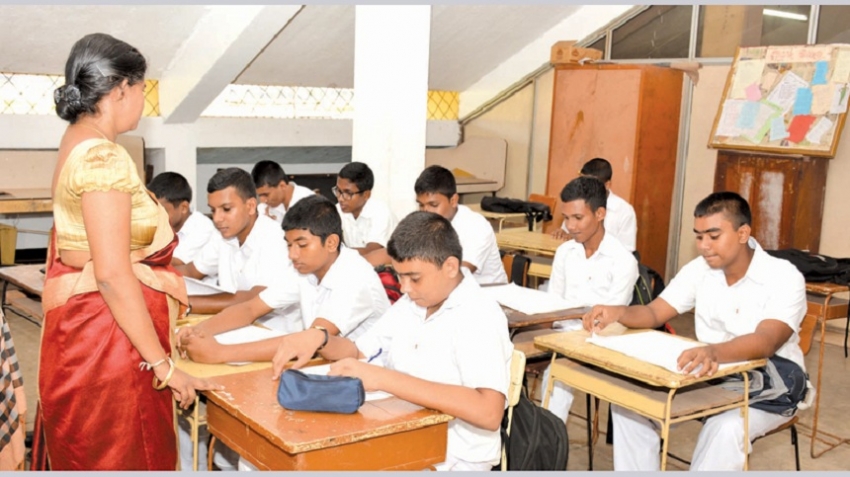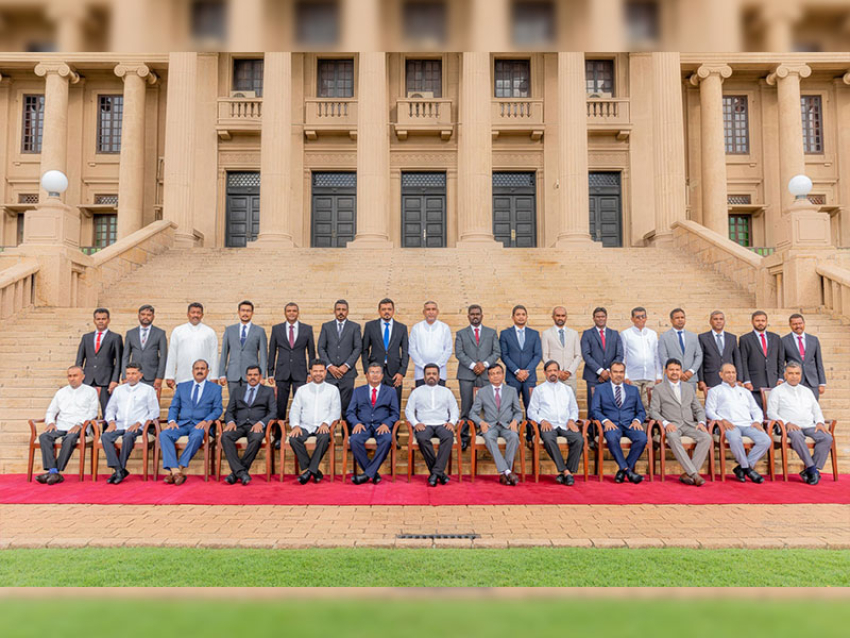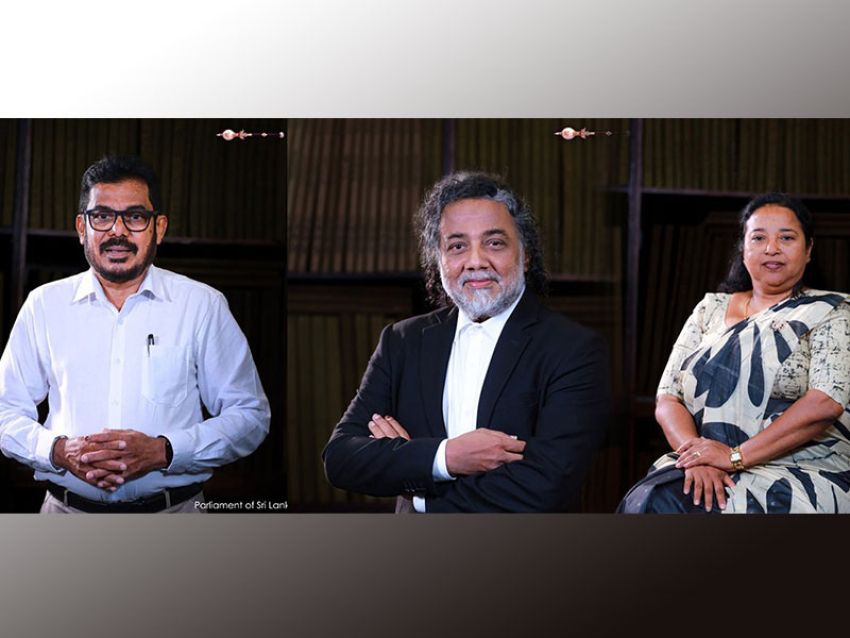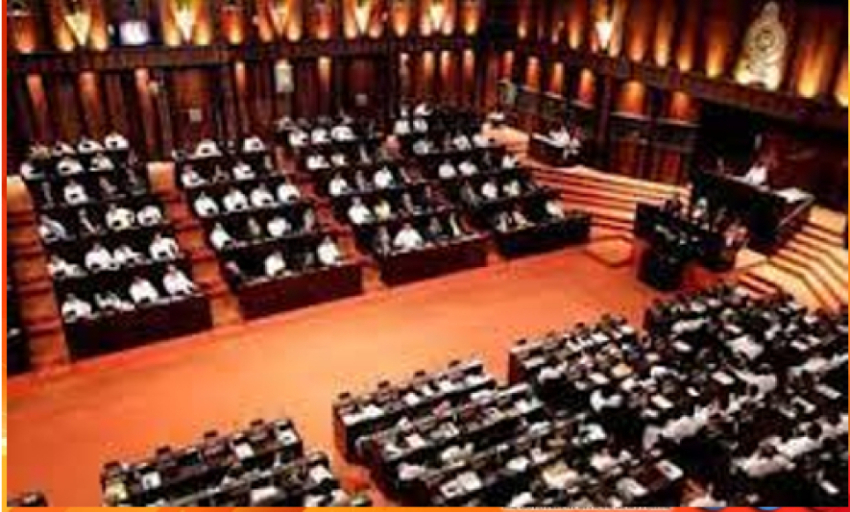S. B. Ekanayake Ph.D
Part I
Education is always in the news more for negative aspects not doing enough to guide the future generations to face the challenges. Others are on the streets demanding more funds for education or even agitating to restore Free Education not even knowing that FE prevails since 1944 in Sri Lanka and in many other nations, very strangely even by those who are enjoying Free Education and recipients of the Mahapola scholarships for many at the university. They also forget the tuition mafia and its role in exploiting the community is sitting on their necks where they are studying. Recent incidents of this mafia provide evidences of the dangers similar to the operations of the medical fraternity. These and many more highlight the great need for major changes in the field of education if ever we have to bring sense and rationality to the whole community to understand the difference between schooling and education.
The challenges in the centuries to come are rote with complex scenarios which have to be understood and sharing of resources because of the imperative need of humanity in relation to sustainability and limited resources which demand more rationality in education than mere schooling for certificates.
As a new government in Sri Lanka has stepped up their educational priorities, though not clearly stated the details in their manifestoes which is normal for any party, has indicated the steps towards quality improvement by way raising the level of teacher development. This is a positive move but hope it will involve quality changes of a revolutionary nature. Accordingly, it is planned to raise the current colleges of education to the status of university institutions. This is a welcome move in the perspective having almost every teacher to be a graduate of a university as is in Finland which is hyped to posses the best education in the world and as is in most of the developed countries.
The intentions should be matched with quality approaches including some competent advisers to guide otherwise merely raising these to university status will not mean quality development. Dynamic changes are needed to resurrect the sleepy nature of the dormant teacher education in Sri Lanka. Merely a degree would not be of any value if the skills of a meaningful teaching learning nature are not imbibed into the skills of these graduates. Otherwise these will also end p in valueless certificates to earn higher wages.
The three fronts that need to merge into the analysis are as follows. Firstly, the relationship of education to the much-hyped concept of sustainable development. The second also partly associated with the first refers to why we have a look only beyond the 21st century. Thirdly, the challenges of learning to meet the targets and rescue missions. Inadvertently all the issues focus on the changes to come and the gravity of these related to resources sharing complexities for the human. How can we sustain with the resources meant for around 1.7 billion to survive in a few decades where the normal population will rise to 7 billion at the end of the 21st century. Man stepped on earth only 4-5000 years back although the planet emerged over a million years ago. To begin with, man did not possess a language to interact, a written means to express ideas and keep records of events and dates. There was nothing ready-made for them, dinner served on a plate. These took further millennia to emerge and establish an order to interact.
Nevertheless, within the space of few millions of years, we have conquered many things, even now, at the beginning of the 21st century, capable of visiting other planets with plans in the drawing boards for ambitious space travel and exploration. However, resources on earth are dwindling faster than perhaps expected, and humanity is in a quagmire. Hence, the sustainability of the earth is at stake. (Alan H. Schoenfeld 1998).
We should have teachers who would combine research with practice and vice versa while at the same time adopt problem based learning. These should be the initial challenges for the teachers. Theorising practice and practising theory is another compulsion for teachers to very alert and avoiding the traditional forms of pedagogy. These methods are very vital for teachers to understand the concept and the practice.
Today knowledge is vital for the development and sharing of such knowledge is critical for humanity. Such an approach would be useful to both acts together and work in liaison with all stakeholders to preserve and protect the resources. Thus ‘the school of the future must make the object of education the subject of his education. The man submitting to education must become the man educating himself: the education of theirs must become the education of oneself’ (‘Learning to be’ UNESCO, 1972).
In the modern-day with all its technology and sophistication in sharing knowledge, transferring of the same to all corners of universe learning has become so easy and quick but also challenging and complex. The latter is mainly due to the explosion of knowledge. Unlike in the ancient days when there was no hurry in learning today, there is a rush to learn and high competition commencing from childhood. There is a need for a firm commitment to ensuring that ‘their children should have better lives than they did earlier. It is this reason why western philosophy is in a rush to find out and know about world phenomena observable, which includes stars and the universe while eastern philosophy is more focussed on inner side of man, the psychological path of the human and the living. This is slow and painstaking but it is more experiential learning.
On the other hand, today the very definition of learning is contested, and assumptions that people make regarding its nature and where it takes place also vary widely. The Oxford English Dictionary defines learning as acquiring knowledge of a subject or skill in (art, etc.) as a result of the study, experience, or teaching. Learning from experiences was one of the main sources of learning then although it happens now learning today is more in a structured atmosphere. Objectives of learning too have changed from then and now. Today one should also learn how to interact with others as well. Hence, ‘learning of self-awareness, reflectiveness, and other aspects of meta-cognition’ have to be incorporated into the formal systems’. These were not essential during earlier periods since these formed as part of life and living or lifelong learning.
Types of learning
How do teachers manage to do what they do, ‘on line,’ in the classroom?
“On the one hand, work addressing such teaching issues is deeply theoretical; it calls for delineating a teacher’s goals, beliefs, knowledge, and decision-making, and modeling how all these interact. On the other hand, such work will have significant practical payoffs. It will provide tools for identifying practices and knowledge that support desired kinds of teaching, as well as tools for examining various forms of professional development and their impact (Schoenfeld 1998).
Educational research is yet another area that has emerged more so seriously during the last few decades. It has evolved to the point where it is possible, to research contexts that are of practical importance for the clientele. Referred to action research or ‘barefoot technology’ (BT) is a tool to solve issues quickly with little expenditure involving the researcher and the researched into a framework of action research. Research also works on problems whose solutions help to make things better and contribute to theoretical understanding. Finding and working on such problems is a high leverage strategy for making a difference in the years to come. This action research (AR) may be slightly different from academic studies which fulfils an urgent need. It could be simplified to the level of a student, as well. It is more of a problem-solving nature of simple issues without much research sophistication but allowing the student to be aware of analysing problems.
Definitions of learning are important, so let us examine this one closely. Learning what and where comes into focus here. It is broad in some ways, for example in that it includes learning from experience as a possibility. Learning in school, although traditionally important, is only one kind of learning. The classroom is, of course, a privileged locale for FE or learning, the first place we think of about intentional learning. We cannot underestimate the role of the schoolyard as well – or the home, the workplace, the after-school club or the shopping mall. Hence why UNESCO refers to ‘learning is what takes place at any time without a centre anywhere’. All of these are referred to under Non-formal education and informal education. Learning is also a lifelong process in the olden days as well as today and certainly tomorrow as well.
Challenges for learning in the coming centuries
Learning would have a different connotation in the future. It would not be learning facts and figures. However, learning contextually and regarding what we have and how much one should consume very prudently since there may not be enough to go around for a long time astronomically. Thus the challenges in the future centuries to come would be of two critical major types. Firstly, related to the technological development, secondly, developing relationships leading to sharing of resources harmoniously and equitably.
In this connection, one would realise the need for researching the impact of what was taught i.e., invested on both the individual and the whole community and the net result rather than leave it as it was so in the earlier centuries. That is a dangerous option which would lead to eroding of both resources and human behaviour sooner than expected. Maximising the prolonging of the use of resources would be of tremendous importance in a world where these would become very precious and rare. ‘It is possible and desirable to think of research and applications in education as synergistic enterprises rather than as points at opposite ends of a spectrum’ (Schoenfeld 1999).
The second relates to the evaluation of the impact of learning in the individual and later on the whole society.
(The writer is a former Basic Education Adviser, UNESCO Central Asia)




















